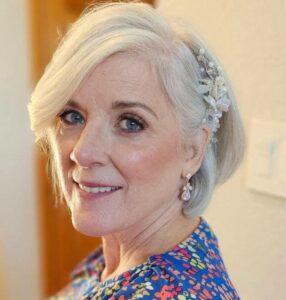A website on culture should certainly cover the stages of acculturation. So, I set out on a refresher course on the names of the stages of cross-cultural living. Several theories float around out there, but I chose this list of stages for their usefulness. If you are about to embark on a year in Thailand or a three-month stint in South Africa, you should expect to journey through each one. Knowing them by name might aid in your sanity.
Stages of Acculturation
EuphoriaCulture Shock
Acceptance
Assimilation
Let’s have a little fun with our discussion on acculturation. Let’s take dog ownership as a basis for understanding. In the stage of Euphoria, a new puppy joins the family. You had a wonderful time searching for him and picking him out from among many possible canines. Your family takes selfies with the puppy and posts more photos than you might admit. Naming him is a delight and purchasing all of his supplies, treats, and bed to match your home décor is another thrill. You want everyone to meet your new dog Jade. In terms of world travel, you can easily see how arriving in a new country compares to this description of this honeymoon stage.
However, the subsequent stage is a bit of a shock. You never expected to hate your new dog by the second week. Others may have had that experience. But not you! The psychological turmoil swirls around dog ownership as you mentally reject the work, the smell, the inconveniences of keeping Jade. You second guess your decision to take on a dog or may even be in denial that you even own a puppy. In this stage called Culture Shock, your puppy is somewhat loathsome—and you contemplate bringing him back! Cross-cultural living takes on the same mental and emotional gymnastics, but at a much more intense level. You’ve risked money, career, family livelihood to live in a foreign place where you lack the rights of its citizens, the social grammar to maneuver its elusive rules, and the language to find out whether the sausage you are buying is beef or pork.
With the passage of time, plodding, acting out of duty and obligation, you leave the second stage for the third one of Acceptance or tolerance. As the puppy grows and behaves himself, he starts to grow on you again. Where you used to let him lick your face or sleep in your chair, reasonable habits and rules take hold that everyone in the family can live with. So, also in this stage overseas, you learn to manage your family’s needs, and your own sense of self returns. In this stage you start to learn what you want and what you don’t want. You find ways to stay sane and rested up in your new home, and even experience a measure of happiness and moments of pleasure.
In the last stage of Assimilation, Jade is a full-grown dog; he has truly become one of the family. Feeding, grooming, and time with him is as easy as breathing. You’re a dog owner, dog lover, and dog advocate. When others tell you their dog stories and foibles, you join in heartily with empathy and a keen experiential knowledge of the ins and outs of dog ownership. Similarly, in this last stage, you cross-cultural skill-set runs deeper than just survival skills. Your neighbors are your kin-folk. You laugh at their jokes. Food, iconic objects or places are woven into the tapestry of your mind and heart. You can’t imagine life without them. This is your home.
Back to Writing Tips
On to the next definition “culture shock”



